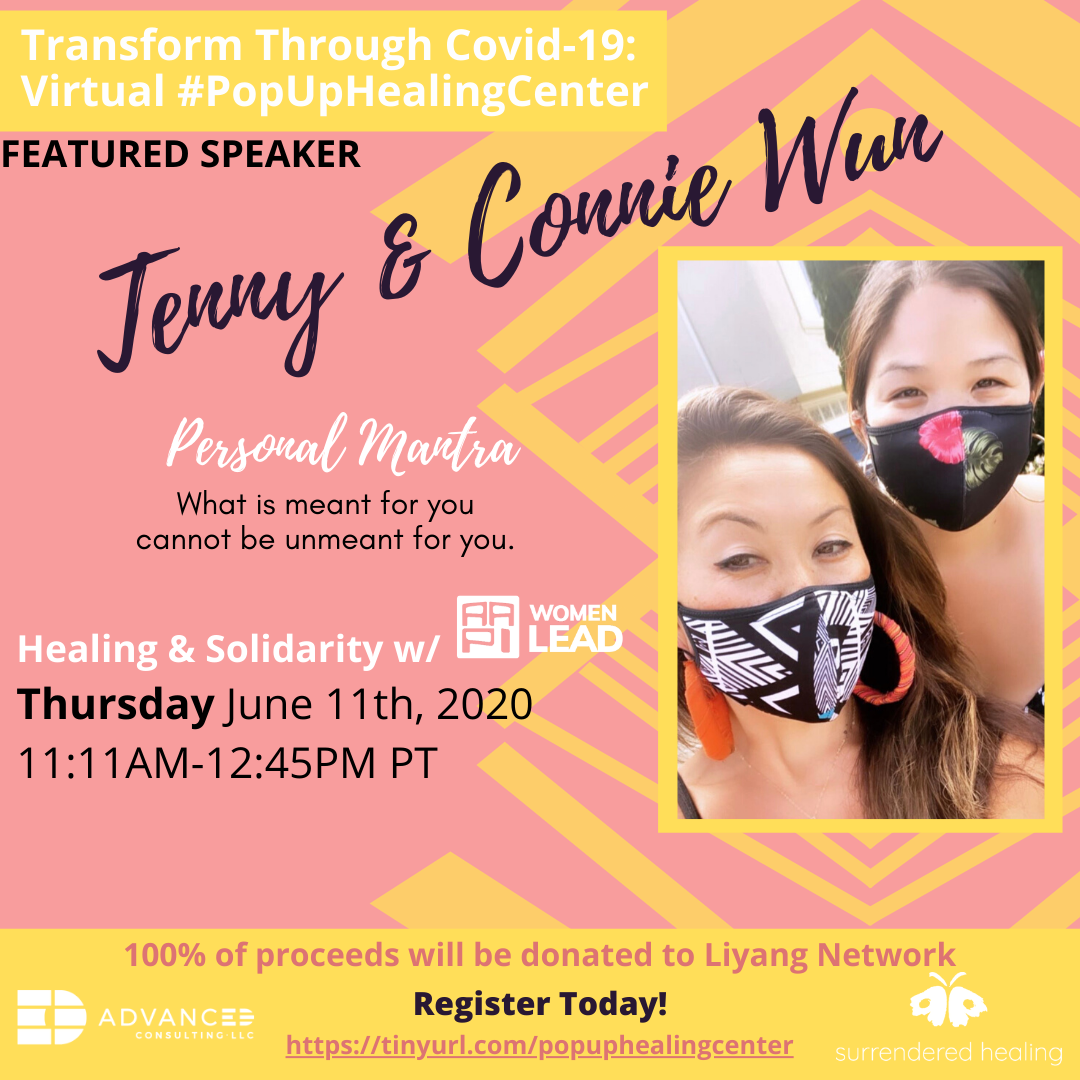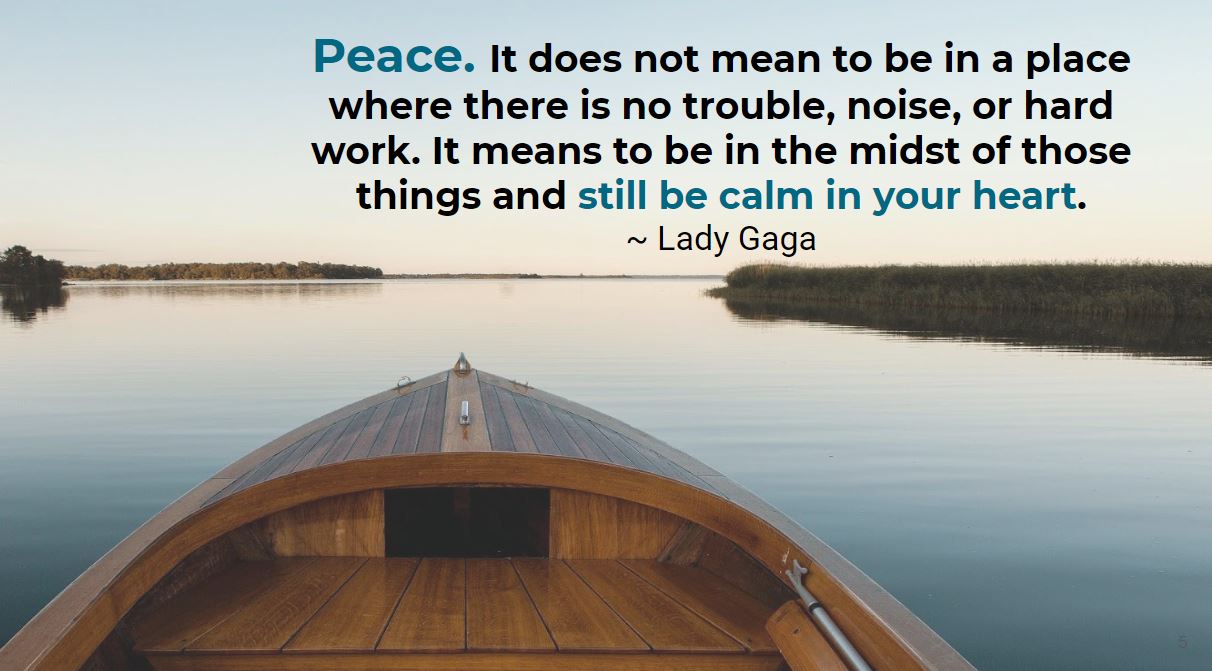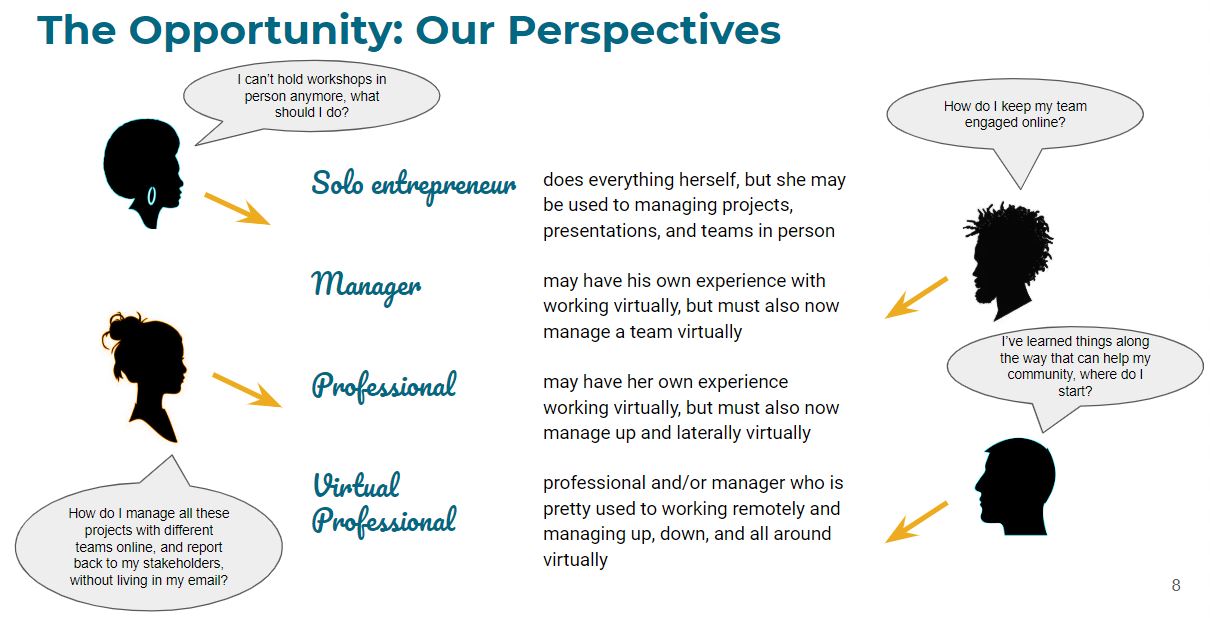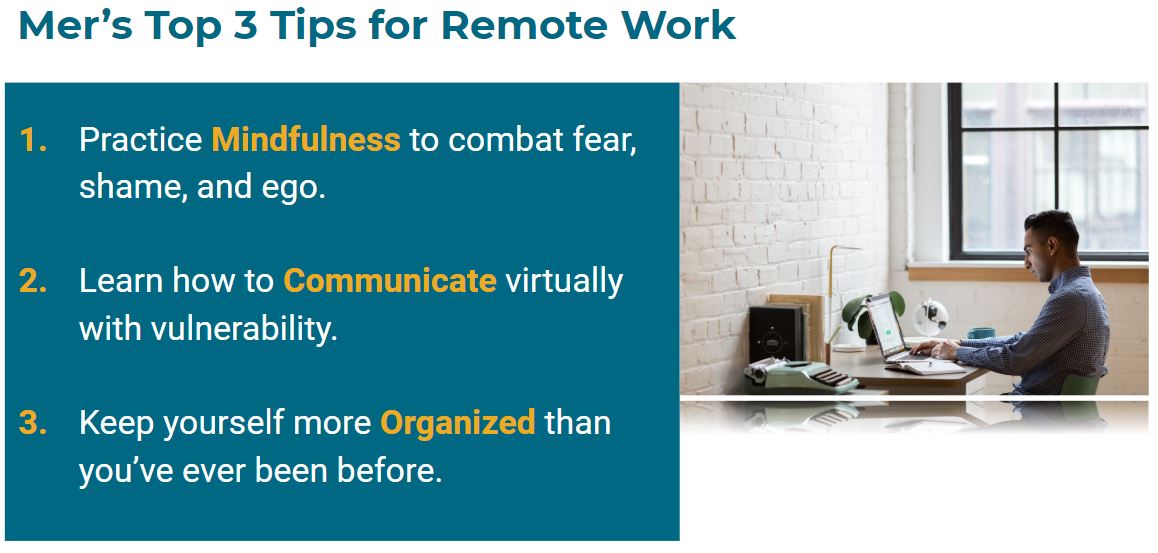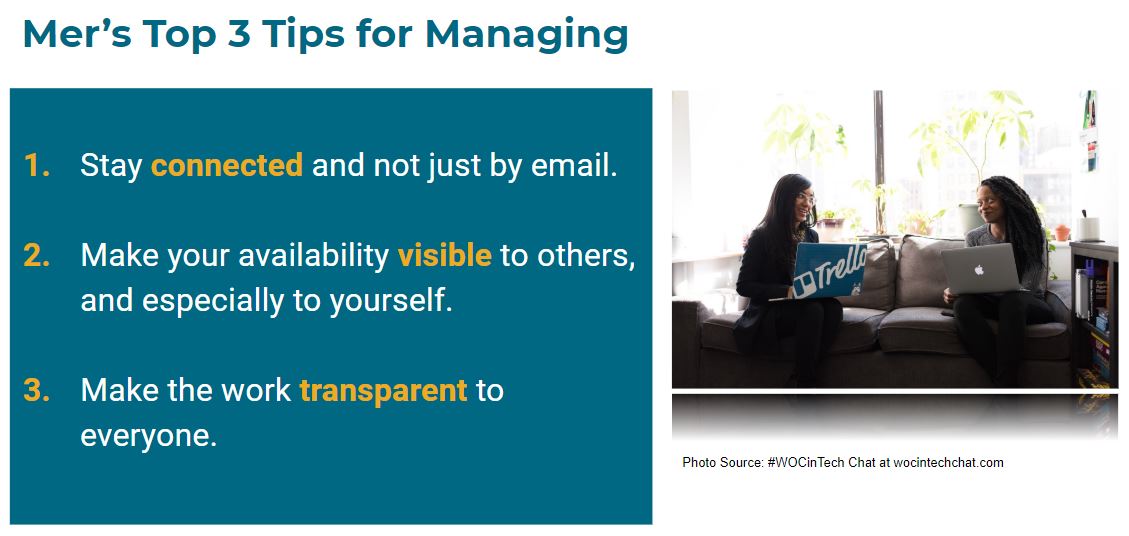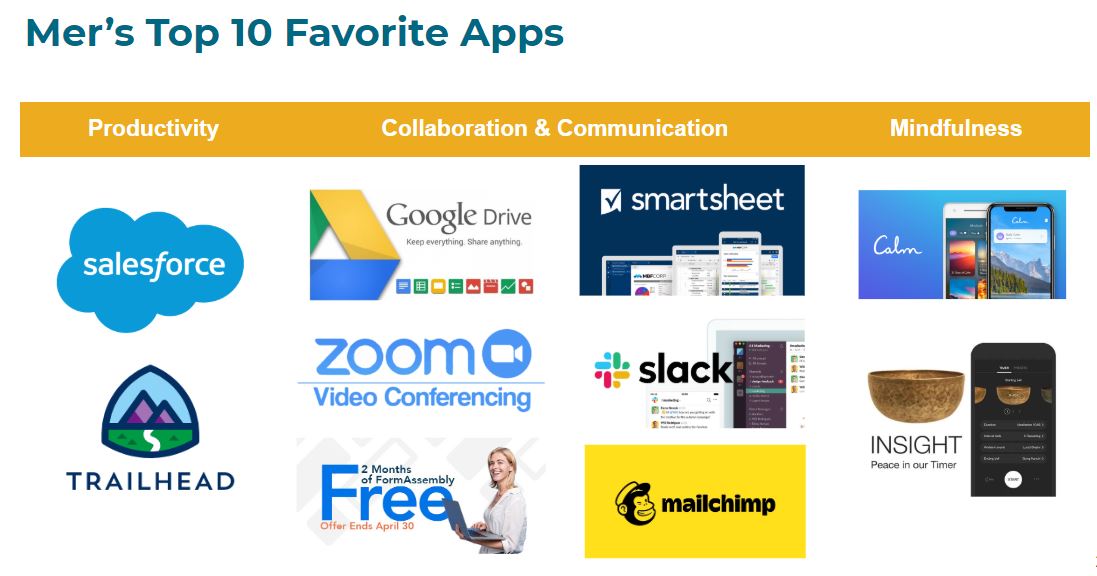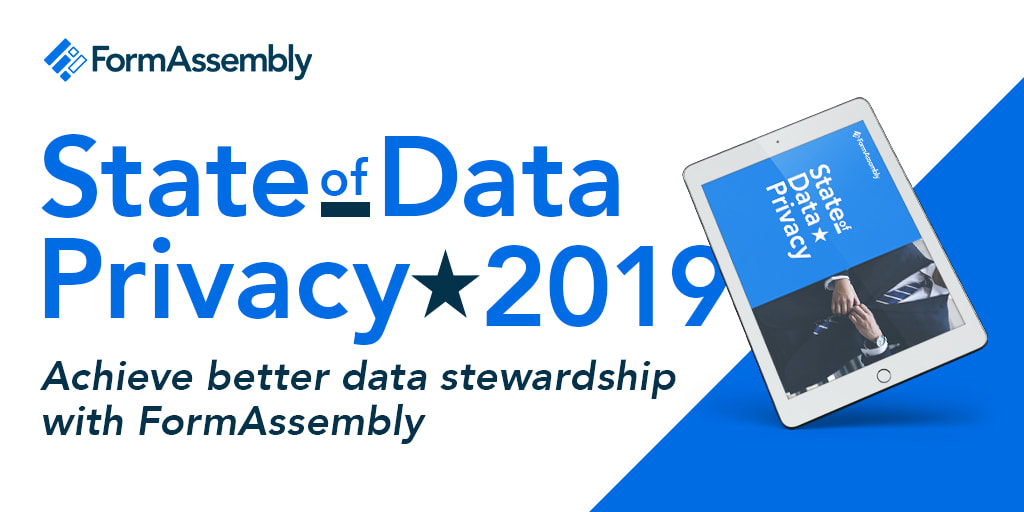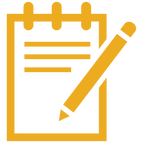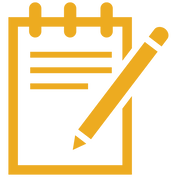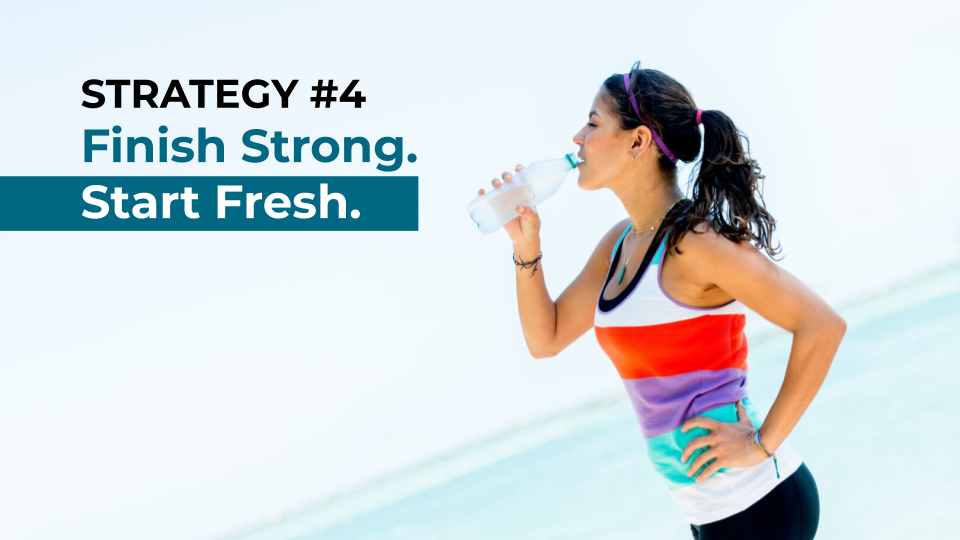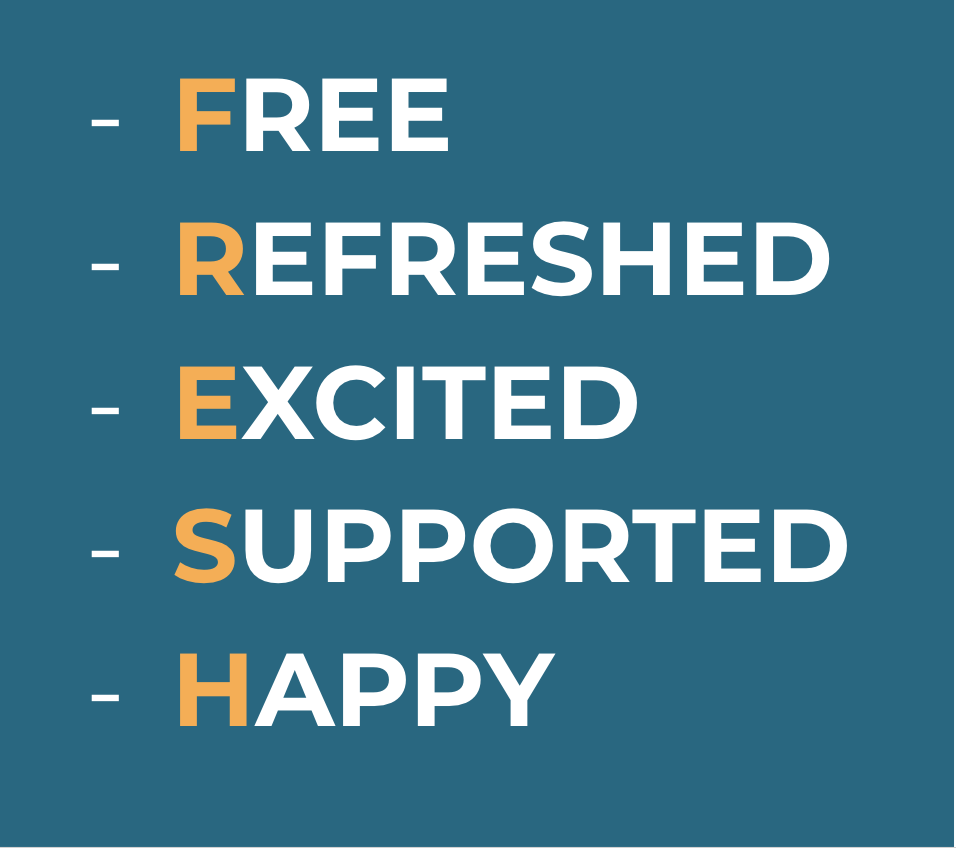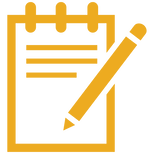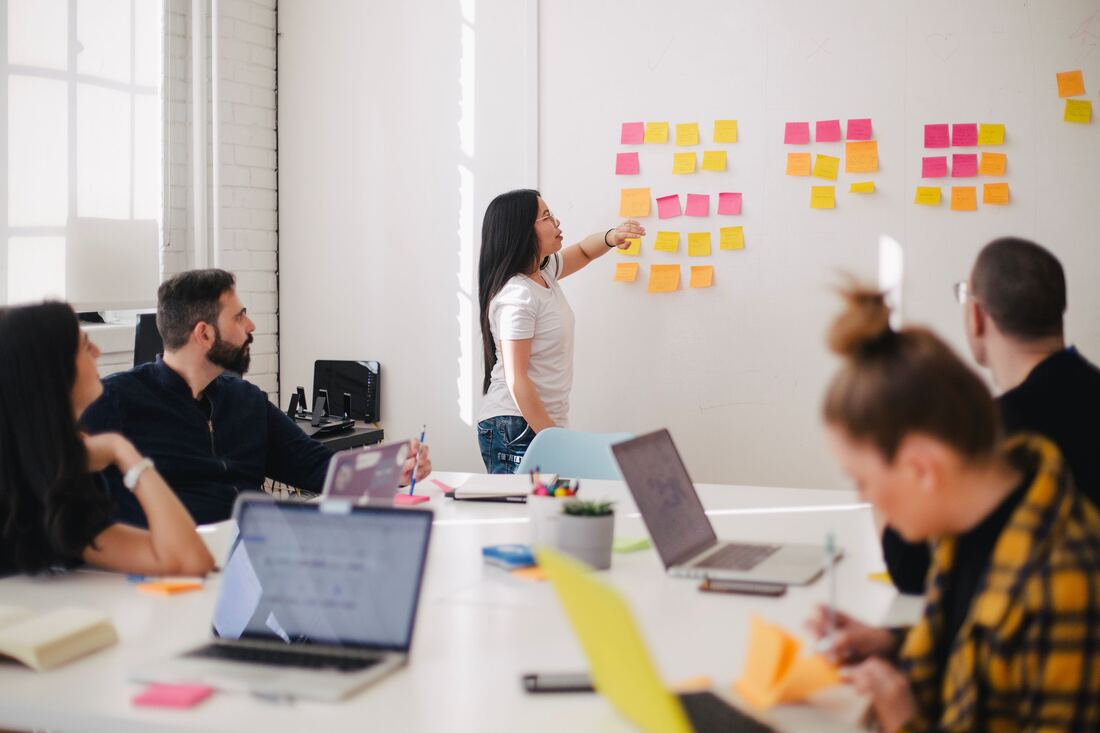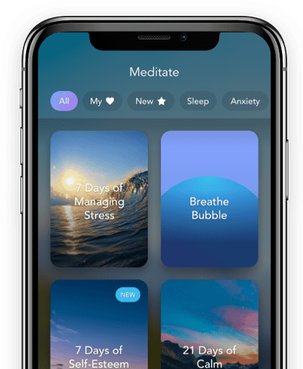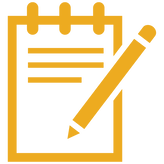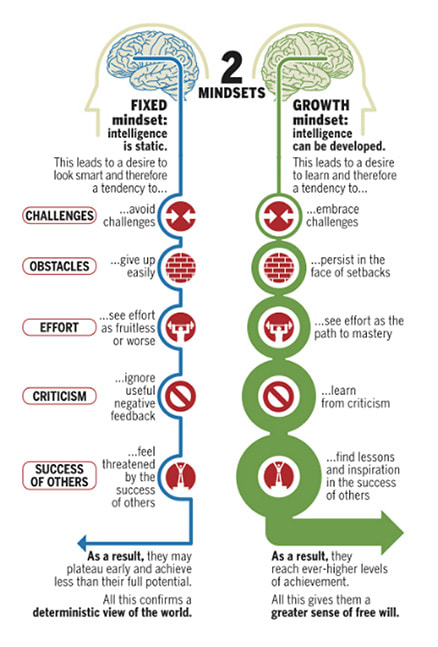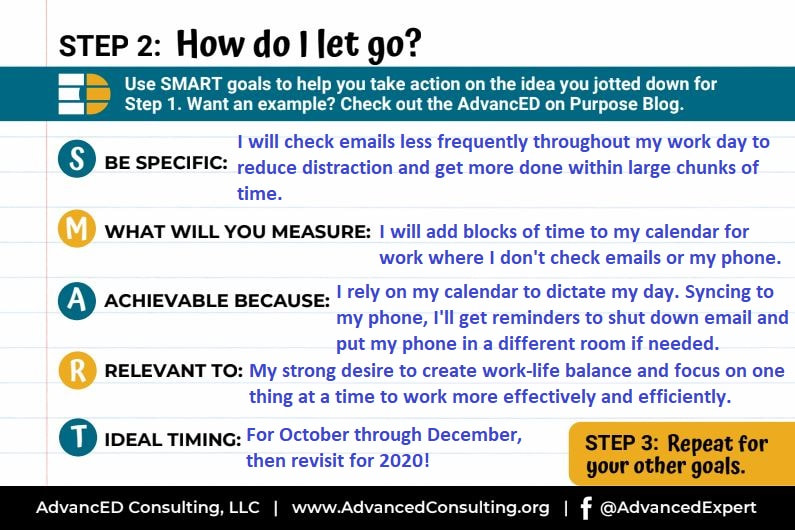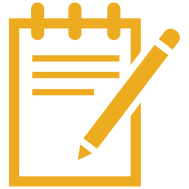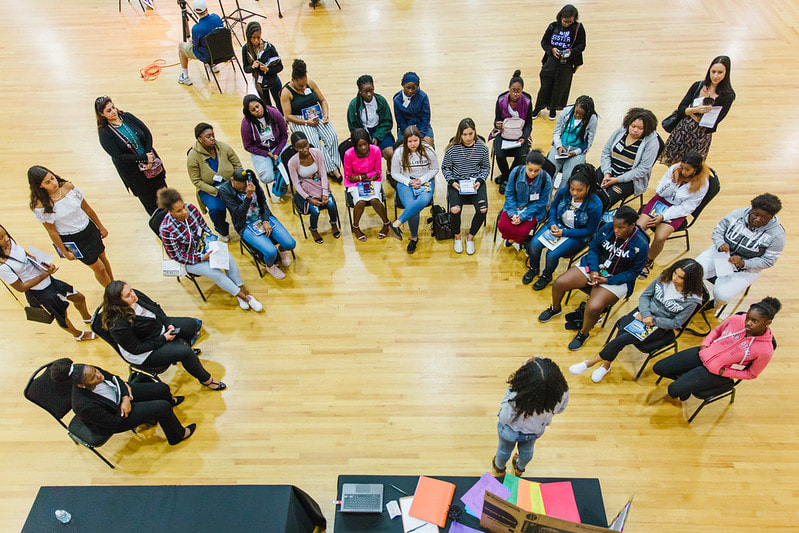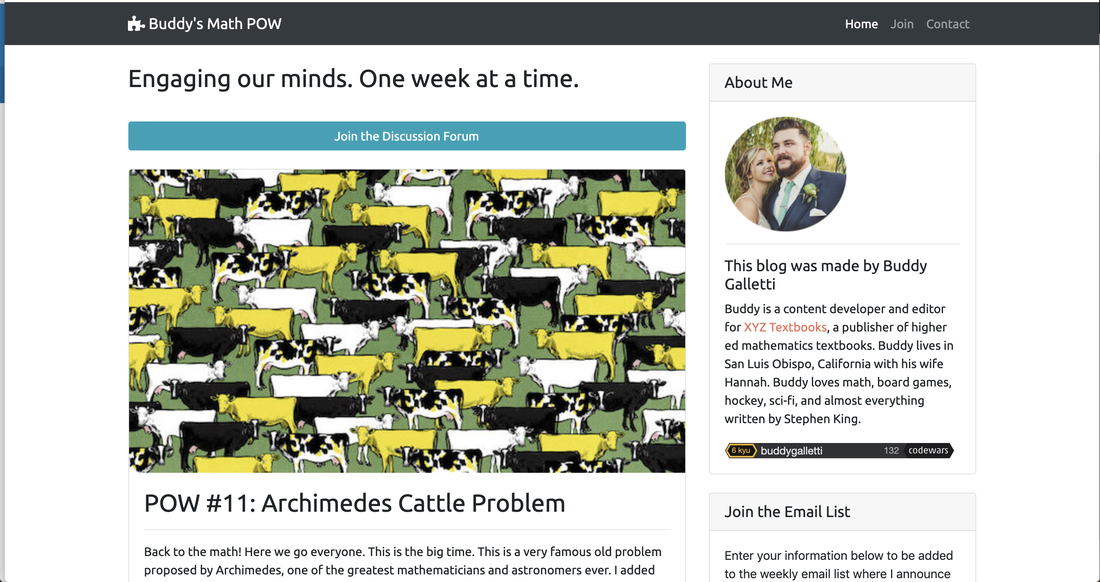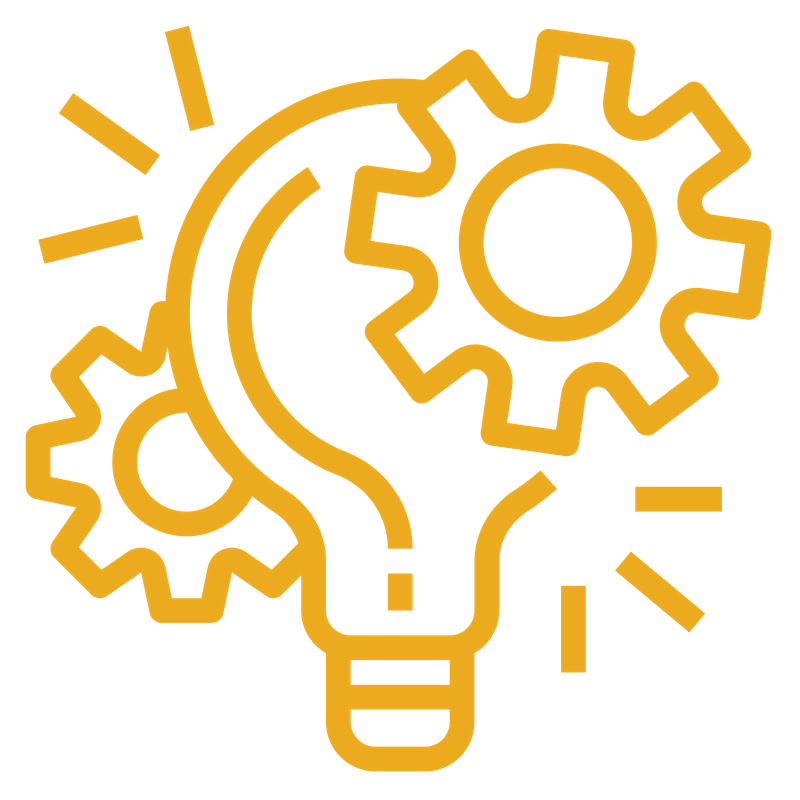ADVANCED ON PURPOSEAn educational blog with purposeful content. We welcome open and polite dialogue, and expect any comments you leave to be respectful. Thanks! Archives
May 2023
Categories
All
|
Back to Blog
Heal at 11:11, Heal for Life5/27/2020 3 MIN READ FOR IMMEDIATE RELEASE CONTACT: Meredith Curry, Owner & Principal Consultant of AdvancED Consulting, LLC mer @ advancedconsulting.org Over 20 Healers of Color From Across the Country Deliver Free Healing When It’s Needed Most Heal in Solidarity: Starting on Saturday, June 6, 2020, AdvancED Consulting, LLC and Surrendered Healing, solo entrepreneur women of color from the Bay Area, will offer a Virtual #PopUpHealingCenter for free for seven afternoons straight. What do we mean by healing? Well, does your heart hurt? Or your head? Does your bank hurt? Do any relationships hurt? Then you can use some healing! And this event has over 20 people ready to support your healing through movement, creativity, and mental enhancement. "11 is a 'master number' which signifies intuition, insight, and enlightenment. When paired together, 11 11 is a clear message from the universe to become conscious and aware" (truththeory.com). This is why every day from Saturday, June 6 through Friday, June 12, “Transform Through Covid-19” will start at 11:11 am with a grounding meditation to start the day led by Surrendered Healing Founder and Spiritual Healer, Adelina Tancioco. Next will be three 20-minute sessions from healers of color from across the country representing the Bay Area, Los Angeles, Fort Washington, and the Bronx. Each day will end at 12:45 pm with 15 minutes of rhythmic movement led by Meredith Curry, Owner of AdvancED Consulting, LLC, and music by Shanta Franco-Clausen, a.k.a. DJ Shugga Shay. “Our work is sacred and so are we,” shares Tovi Scruggs-Hussein, Educational Leader & Healer with Tici’ess, Inc. in Oakland, CA who will lead a session called “$tackin' for Spirit: Keeping Your Money Conscious, Connected , and Courageous.” We invite you to be a part of this virtual healing community by registering for “Transform Through Covid-19” and enjoying one day, or everyday of the week-long event. This is for you if:
To learn more and register, go to www.advancedconsulting.org/pop-up-healing-center. Read the profiles of the event speakers and explore nearly two dozen sessions. Fawad Akbar, Owner of Body Evolution in Newark, CA believes, “Two things define you. Your patience when you have nothing, your attitude when you have everything,” and he will share this with us in practice in his session “Full Body Workout with Body Evolution.” “Transform Through Covid-19” is proud to partner with AAPI Women Lead founders Dr. Connie Wun and Jenny Wun who will lead a day of Healing & Solidarity. “What is meant for you cannot be unmeant for you,” shares Jenny who will lead a session with her sister called “Healing & Solidarity.” The event also promotes a fundraiser to support the Liyang Network during COVID-19. 100% of contributions will go to services, resources, and supplies for the Lumad, the indigenous people of Mindanao, Philippines. “Lumad” means “native of the land” in Cebuano. In celebration of the Lumad and all Filipino cultures, there are healers offering sessions like "BAKS NAMAN! Self Care through Boxing;" "Dalawang Buslo, Two Baskets: Integrating Stress & Joy in the Present Moment;" and "Hilot Through Story." For more information about Transform Through Covid-19: A Virtual #PopUpHealingCenter with 21 Healers of Color or to arrange an interview with the co-hosts Meredith Curry and Adelina Tancioco, please contact Meredith directly at [email protected]. ### Meredith “Mer” Curry is the Owner and Principal Consultant of AdvancED Consulting, LLC. Mer’s mission is to empower businesses striving to solve the world’s most complex issues through thought-partnership, education, and operational leadership. She also seeks to uplift organizations run by and/or actively promoting the betterment of hxstorically disadvantaged groups like minorities and womxn. Mer works with entrepreneurs, nonprofit and education organizations to increase capacity organization-wide. She works with their leaders and professionals to enhance fund development, board management, programming, data analysis, Salesforce, and general operations strategies and processes. For more information see www.advancedconsulting.org or follow Mer on LinkedIn and Facebook.
0 Comments
Read More
Back to Blog
Transitioning to Remote Work3/18/2020 4 MIN READ In light of the disruptions caused by the coronavirus (COVID-19), many are finding themselves working remotely, getting laid off, having their hours reduced, and more. This article is focused on those who are able to continue working from home. For those of you who are looking for advice and resources because you cannot work from home, please Contact Me and let's take it from there. A recording of the Transitioning to Remote Work webinar on March 18 is available here (54:26). How should I tackle working from home?For whatever reason, we're working from home now. All hundreds of thousands of us. And we're all coming at this new reality from VERY different perspectives. Here are just a few of the perspectives I talk about on my webinar that goes with this Blog article. I'm sure there are many more where this came from.
Once we have reflected on who we are and where we're coming from, we should take a deep breath because we understand 1) our own level of comfort and acumen working remotely, 2) my company's level of comfort and acumen working remotely, and 3) my ecosystem's level of comfort and acumen working remotely. It's important to know these three things because then you will know the #1 thing: It is NOT 100% your responsibility to figure this out. It's only 1/3 of your responsibility. Now that you believe that, you can focus on where you have control, and the first place you have control is how you tackle remote work. For this I offer you: Mer's Top 3 Tips for Remote Work. For Tip #1 for Remote Work, I discuss Mindfulness. Here is what you need to know:
For Tip #2 for Remote Work, I share Mer's Tips for Over-Communicating. Some of these include:
For Tip #3 for Remote Work, I discuss Organization. A few ways to get even more organized than ever include:
Next, I offer: Mer's Top 3 Tips for Managing. For Tip #1 for Managing, I discuss Staying Connected. You will need to take advantage of tools like Salesforce, Quip, Slack, and more to make connection possible. You'll also need to be more strategic with your meetings, which could include:
For Tip #2 for Managing, I share how to Be Visible. You will need to develop and/or refine routines like:
For Tip #3 for Managing, I share how to Be Transparent with Mer's Tips for Over-Documenting. Some of these include:
Lastly, I would like to share: Mer's Top 10 Favorite Apps. Rather than go through them in detail in this article, you'll find their logos below. You can learn more about them in the AdvancED Toolbox and in my handout Transitioning to Remote Work: Resources. You can also Contact Me with any questions or to ask for recommendations. The first Transitioning to Remote Work webinar was hosted on Wednesday, March 18 at 6:00 pm PDT. Click here for the recording (54:26)! The next webinar is on Thursday, March 26 from 11:30 am to 1:30 PDT. Register on Eventbrite and join us, you can learn while you have your lunch!
Back to Blog
A Review of GDPR and CCPA12/9/2019 5 MIN READ This article is the 2nd in a series. Read the introduction article: "Why Data Privacy Matters." So you know what your data looks like. You know what it is used for. You have a sense of who touches it and who uses it. Now what? Now, you educate yourself on data privacy. If you have data, you need to protect it. I had the opportunity to speak to this on a webinar hosted by FormAssembly on August 21, 2019. I joined Maggie Tharp at FormAssembly to talk about the data privacy landscape in 2019, and evolving regulations and best practices. Check out the Webinar Recap: California Privacy and How It Affects You. On the webinar, Maggie and I discussed The General Data Protection Regulation (GDPR) as well as the California Consumer Privacy Act (CCPA) which will go into effect on January 1, 2020. As FormAssembly’s guest presenter, I spoke to the implications for nonprofit and educational organizations who may not have people or processes in place to specifically track data privacy and how it impacts organizations. In my Webinar Recap, I share some key insights that I shared on the webinar. As a follow up to their Data Privacy Deep Dive Webinar Series, FormAssembly recently published their white paper, State of Data Privacy in 2019. In this guide, they talk about the data privacy landscape in the United States, the new data privacy laws in other U.S. states, where businesses stand, and tips on better data stewardship. A realistic next step to prepare for CCPA is to have a discussion with the relevant leaders of your organization and determine your level of preparedness. Review FormAssembly’s white paper, State of Data Privacy in 2019 and give your organization a rating of Very Prepared, Prepared, Somewhat Prepared, or Not Prepared. Depending on what your team decides, make a plan to move your team to Prepared or Very Prepared. I’d like to share some highlights from the guide, and weave in some of my own best practices. These tips come from working with small to large, local to virtual organizations across California in developing and implementing data privacy business processes and protocols.
Read my next article “How You Can Protect Your Data” (under construction) for more tips and tricks to manage and protect your data. Want support developing a data governance strategy? Data governance helps organizations manage their stakeholder data and protect it from being abused, stolen, or lost. AdvancED can help you design an effective data governance strategy that will describe the steps to analyze, secure, store, and manage your organization’s stakeholder data. Schedule your free 20-min consultation now. Related articles
About Author: Meredith "Mer" Curry Mer has always had a passion for education and helping historically underrepresented groups achieve access and success to higher opportunities. She has consulted nonprofits, educational institutions, and businesses in addition to her volunteerism and mentorship of students.
Learn more about Mer at www.meredithcurry.com.
Back to Blog
Why Data Privacy Matters12/5/2019 4 MIN READ This article is the 1st in a series on "Why Data Privacy Matters." I learned the importance of data starting in high school working at a local CPA firm in downtown San José during my summers. Making my way through rows of filing cabinets, building up a tolerance to papercuts, and sneezing my way through dusty file folders, I took numbers off pieces of paper and turned them into financial statements. Sometimes it was straightforward data entry. Other times I double-checked the math after translating illegible debits and credits into typed balance sheets and income statements. Today I am so adept at ten-key I can type rows of numbers without looking at the keypad. I am also so grateful now for Excel formulas, pivot tables, and tools like Salesforce and FormAssembly that can bring clarity, transparency, and automation to once complex and highly manual (and thus, fraught with human error) processes. In my over 10 years of being a certified Salesforce Administrator and over 20 years of championing Excel, I am a firm believer that the more data you can have at your fingertips, the more questions you can develop to find intelligent answers to. But in my years of working with corporations, startups, and nonprofits, I’ve seen varying levels of success making use of the data that is available. Often, the challenge isn’t just what to do with the data you do have, but how to get the data you really need for the scale and impact you want. This might mean taking a step back and asking yourself, “What data do I have now, what am I using it for, and how has that been helpful?” It might then lead you to ask more questions like, “What data should I continue to track, what questions will they answer, and how will that be helpful in the long-term?”
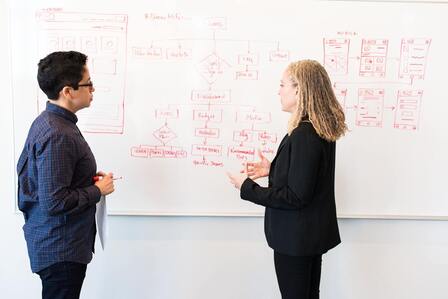 If as a professional, manager, or executive, you are not asking yourself these questions at regular intervals (I recommend quarterly if not annually), then I highly recommend that you start now. Once you go through this fact-finding mission of understanding what data you have and what it is used for, the next important question is, “How am I protecting it?” I’d like to give you the use-cases, best practices, and tools to develop an intentional action plan around data privacy to ensure you are protecting the data you have and the data you intend to collect. Read my next article “A Review of GDPR and CCPA” to learn about the most important regulations and legislations that inform the policies and practices you may need to develop around data privacy. Want support developing a data dictionary? A data dictionary is a document (Word, Excel, whatever suits your fancy) that describes the types of data collected, the sources, the intended uses, and how the data is stored, archived, and scrubbed/deleted over time. Let’s talk about how our advisors can help you customize a data dictionary for you that tracks all of your data elements from all of your sources (e.g. Google Analytics, Salesforce, Google Sheets, Excel). Schedule your free 20-min consultation now. Related articles
About Author: Meredith "Mer" CurryMer has always had a passion for education and helping historically underrepresented groups achieve access and success to higher opportunities. She has consulted nonprofits, educational institutions, and businesses in addition to her volunteerism and mentorship of students.
Learn more about Mer at www.meredithcurry.com.
Back to Blog
4 MIN READ This article is the 5th and final one in a series. Read the introduction article: "Breaking Knowledge Barriers Series: Womxn of Color in the Workplace." If you Acknowledge who you are, Accept the strengths and challenges in front of you, and develop a risk tolerance to Adapt to situations as they come, you’re in a pretty good place. But let’s go back to the first question that I had to ask myself - What Can I Give Up? This is why I say, Finish Strong. Finish whatever is holding you back with strength. This might be just what you need to move forward on something else. Be intentional about finishing whatever it is, and focus on ending it with a lesson to validate the effort.
spreadsheets and trade them in for Quickbooks Self-Employed or something:
Once you know the owner, size, and the priority of this project you want to START, you can rumble with vulnerability as the great Brené Brown advises in Dare to Lead. You can let go of the need for this project to look and feel a certain way if you’re going to delegate it. You can let go of the anxiety of thinking about it right now if you know it’s not going to come up again for several weeks. I bet you will also realize that you have mad delegation and prioritization skills as well! Lastly, Back Yourself Up by building a strong bench of people that you can rely on to support you. If you can set up a formal advisory or committee, awesome. If you can find a mentor, wonderful. If you can join a community like a local commission or network like the Women’s Networking Alliance or the Asian Pacific American Leadership Institute, way to step it up! The most important part is getting positive reinforcement and honest guidance from outside of yourself, while also building your inner monologue of positive vibes and affirmations. And whenever possible, build a diverse bench. It should have people that look like you and people that don’t look like you. It should have people that will agree with you on some things and people who will disagree with you on some things. Stack your bench with people who will look out for your best interest, which is not the same as Yes-people.
You now have all of the strategies you need to begin to tackle any knowledge barriers or general challenges you may have face as a woman in business, education, law, medicine, etc. You already have the will and the grit to move forward; you only need to take the first step. Know that I believe in you and that I am taking those steps with you. Sincerely, Mer Related articles
About Author: Meredith "Mer" CurryMer has always had a passion for education and helping historically underrepresented groups achieve access and success to higher opportunities. She has consulted nonprofits, educational institutions, and businesses in addition to her volunteerism and mentorship of students.
Learn more about Mer at www.meredithcurry.com.
Back to Blog
5 MIN READ This article is the 1st in a series on "Breaking Knowledge Barriers". I have had the opportunity to work for some amazing visionaries and leaders in Southern and Northern California. I landed some of my first jobs out of college thanks to the help of staffing agencies who liked that I could type over 100 words per minute, knew ten-key, had loads of customer service experience, and was visibly eager to make a difference somewhere. As I grew in skills, roles, and responsibilities, I watched myself stretch and reveled in the expansion that can only happen when you’re granted the opportunities to. My supervisors were pretty good at spotting my drive, resilience, growth mindset, risk tolerance, and desire to learn as much as I could. After being an Executive Assistant, Office Manager, Accounting Coordinator, Program Specialist, Grant Writer, and then Executive Director, I found my passion and strengths as an operations executive. With that passion, I helped start a statewide nonprofit that supports over 15% of California’s public 6th-12th graders with college and career planning tools, and I’ve consulted with multiple nonprofits and leaders to help them achieve their visions. The moral of this short story for me is that every step of the way, when I had the opportunity to bet on myself, I did and often, I won. What I skipped in the story are the massive mistakes, failures, misperceptions, wrong assumptions, and poor leadership that I had to struggle through in order to get new roles, take on new responsibilities, and absorb new skills. If this sounds anything like your own journey, then perhaps like me, you also had to navigate strong bouts of insecurity, depression, loneliness, codependency, nagging self-doubt, and creeping suspicion of everyone and everything. If this sounds like you, then I invite you to keep reading.
|
|
"What Can I Give Up" Activity
Check out my “What Can I Give Up?” Activity that I often share with my clients to help them figure out how to let go of certain things holding them back in their lives. I show a personal example of my use of SMART Goals to create actionable steps towards giving up a specific habit. Included is a free printable for you to do the activity as well. Enjoy! |
Do you watch Parks and Recreation? If so, then this moment of realization for me was like Leslie Knope owning, “I am big enough to admit I am often inspired by myself.” In this moment of telling myself that I was enough, that I didn’t need to be anything more, that I wasn’t something broken that needed fixing, I tuned into who I was again - someone with love and compassion who can inspire the best in others. I had just gone so long without aiming my strengths at myself.
I continue to learn from this lesson, to break it up into smaller chunks, to dig deep into the nuances of my needs. I have some take-aways that I want to share with you as strategies for leadership development and self-care. This is aimed at entrepreneurs, managers, and those who run businesses, teams, and projects. But really, these strategies are relevant to anyone who is struggling with a leadership challenge in their personal or professional life. I have written a separate blog post for each strategy in this "Breaking Knowledge Barriers" series. Click here to go to Strategy #1 on Practicing Mindfulness.
Related articles
- Article 1: Breaking Knowledge Barriers Series: Womxn of Color in the Workplace.
- Article 2: Breaking Knowledge Barriers Series: Strategy #1 Practice Mindfulness.
- Article 3: Breaking Knowledge Barriers Series: Strategy #2 Roll Call! Identify Yourself.
- Article 4: Breaking Knowledge Barriers Series: Strategy #3 Acknowledge. Accept. Adapt.
- Article 5: Breaking Knowledge Barriers Series: Strategy #4 Finish Strong. Start Fresh.
About Author: Meredith "Mer" Curry
Learn more about Mer at www.meredithcurry.com.
Today, I write about how a growth mindset can be applied as adults. I write to claim that “An old dog can’t learn new tricks” is absolute rubbish and written by those who didn’t want to have to learn any new tricks. I believe growth mindset is a tool each and every one of us can have in our toolkit. I also believe that learning how to adapt SMART Goals into our lives as professionals can help us reinforce our growth mindset from everyday situations to those challenges that come straight out of left field.
| What is a growth mindset? I recommend TransformingEducation.org’s Toolkit as the resource to learn more about Growth Mindset. Though the content is written around students, the information is true about people of any age. As adults, we hear ourselves everyday, saying to ourselves or out loud, “I just can’t…” or “I never…” or “I’ve never been good at…” or “I don’t ever want to…” This is considered a fixed mindset. One in which we are inflexible, where we believe we cannot change. This can be fueled by shame, self-doubt, our image of our weaknesses and strengths, and any number of factors. On the other hand, if you have a growth mindset, you believe you have what it takes to change. You understand that if you put in the work, persevere, practice, and push through even when it gets really difficult, you can find a way. |
Do you see/read how the self-talk is different? Recognize that the fixed mindset sounds awfully familiar, much like the negative self-talk we have about so many other things. Like what we should wear, where we can travel, who we can befriend or date, what job we can apply for, and what we deserve. These thoughts are choices. But sometimes these choices have become so redundant that they’ve become rote, meaning you don’t even think about the choice anymore. This is where SMART Goals comes in.
SMART Goals are taught to students as a way to help them define and focus their goals for their life. As an adult and entrepreneur, I see SMART Goals as a way to shake the fiction out of our goal-setting (fiction being bias, self-judgment, shame, thoughts, etc.). Instead we can use SMART Goals to get to the facts, the brass tax, about this goal that we’ve communicated to the universe and what we really mean and intend by it. Below is an example of how I used SMART goals to figure out how to better prioritize a minute task that was taking up so many hours of my day.
- S = Specific. When you write down your goal it should be as specific as possible which will force you to be clear. Say it in one sentence.
- M = Measurable. What will you measure to know you are successful? How will you quantify your objective?
- A = Achievable. State one or more ways that you will make this goal realistic. Who can you bring in or what tools and tactics can you use to achieve this goal?
- R = Relevant. Note that here, I depart from the traditional SMART Goal definition which is “R for Realistic.” I think as adults, we’re more likely to talk about goals in terms of pragmatic realism, as opposed to being too dreamy. Since we want to think outside of the box, instead I ask us to think about how this goal is relevant to our profession or life.
- T = Timing. Goals need deadlines for real umph. So set a due date, or a range of days/weeks/months in order to accomplish this goal.
|
AdvancED Activity WHAT CAN I GIVE UP?
As leaders and entrepreneurs, our daily lives can quickly become overwhelmed with tasks. This two-step activity is meant to encourage you to think about everything you need to do in order to decide what you are willing to give up. Then, you will use SMART Goals to take action toward prioritization, organization, and achievement of your goals. Click here to download the What Can I Give Up Activity sheets (PDF). |
We are grown-ups with a lot of growing up left to do
I believe that as adults we still have much to learn and practice when it comes to growth mindset and building mental toughness and emotional intelligence. If you run a business, team, department, or project, you need to be able to triage and communicate goals. In your own life you may need to set one or two SMART Goals a week around things at work or at home to help you get more organized, bring more clarity, or simply create more space in your life for the things you love.
I encourage us all to continuously work on developing our growth mindset, to use SMART Goals as one tool in our toolkit in our everyday routines, and to share our goals with our circles of influence so that support can come to you in the form of intentions and good juju to come.
Want support thinking through your goals?
Let’s talk about the goals you want to set for your life, your team, or your business! Schedule your free 20-minute consultation now.
About Author: Meredith "Mer" Curry
Learn more about Mer at www.meredithcurry.com.
https://www.transformingeducation.org/growth-mindset-toolkit/
Sources:
- Growth Mindset Toolkit
- LeaderKit_Sample.pdf
- Growth mindset for adult learners, OCTOBER 11, 2017
- Shift to a Growth Mindset With These 8 Powerful Strategies
- Is Mindset Culture Shift Possible for Adults? June 15, 2016
Educators and Tools that Inspire.
Working in college access for over 15 years, I’ve definitely seen students lose their love of learning, sometimes to distractions or to hardships, but sometimes also because of the way education is fed to them. We cannot expect students to be engaged if we do not make an effort to engage them. We cannot expect students to meet us where we are if we can’t bother to meet them where they are. I have met some of the most phenomenal educators in my life, from Alerie Flandez in San Jose, Meghann Panagsagan Seril in Los Angeles, to Karla Talkoff in Daly City. A common thread is that they see the student as human, don’t lose sight of their potential, and they themselves love to learn and strive to find new ways to teach the different personalities and learning styles they meet every single day.
|
AdvancED Tip I track tools like Buddy’s Math POW and more in Salesforce! How? I created a place just for Resources, and I track the webpage, the source, the published date, what topics they are related to (college access, workforce development, policy, identity), and what I got out of it. Why? Because later on when I’m asked for resources or when I want to share a specific set of tools, I can easily search for them and share them with my clients, friends, or other people in my network!
|
I hope you are inspired to find other cool learning tools out there, or to create your very own. Comment below some great learning tools you have used or hope to try in the near future. Also, be sure to check out our AdvancED Toolbox for some of our favorite tools.
About Author: Meredith "Mer" Curry
Mer has always had a passion for education and helping historically underrepresented groups achieve access and success to higher opportunities. She has consulted nonprofits, educational institutions, and businesses in addition to her volunteerism and mentorship of students.
Learn more about Mer at www.meredithcurry.com.

 RSS Feed
RSS Feed
